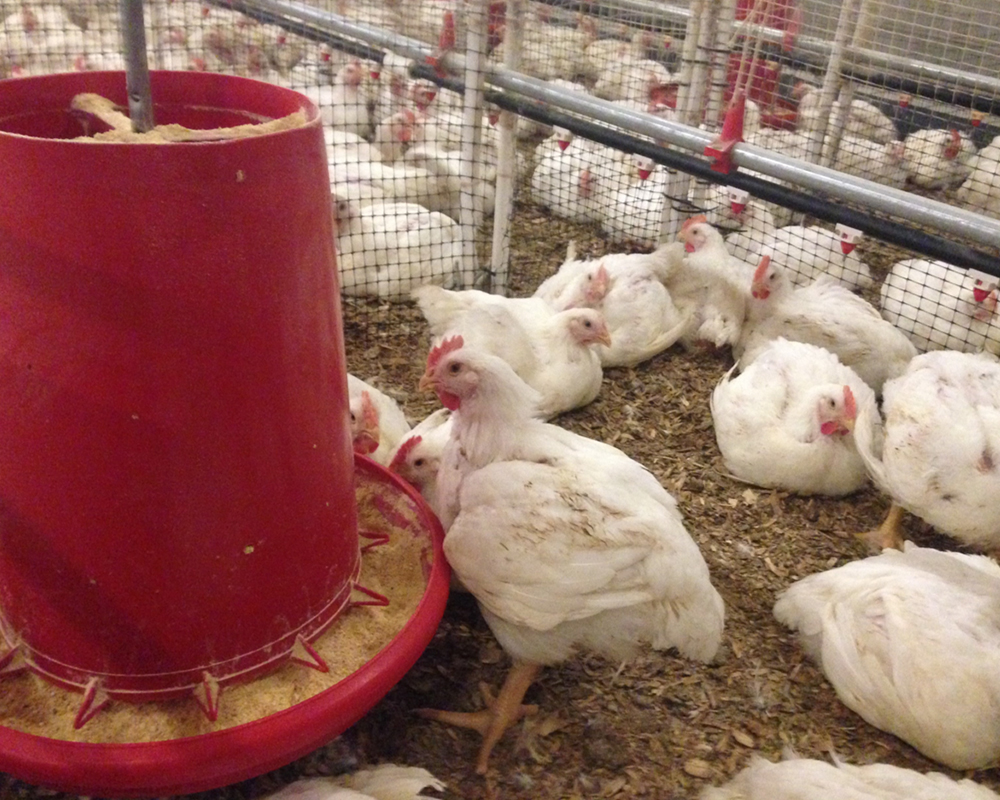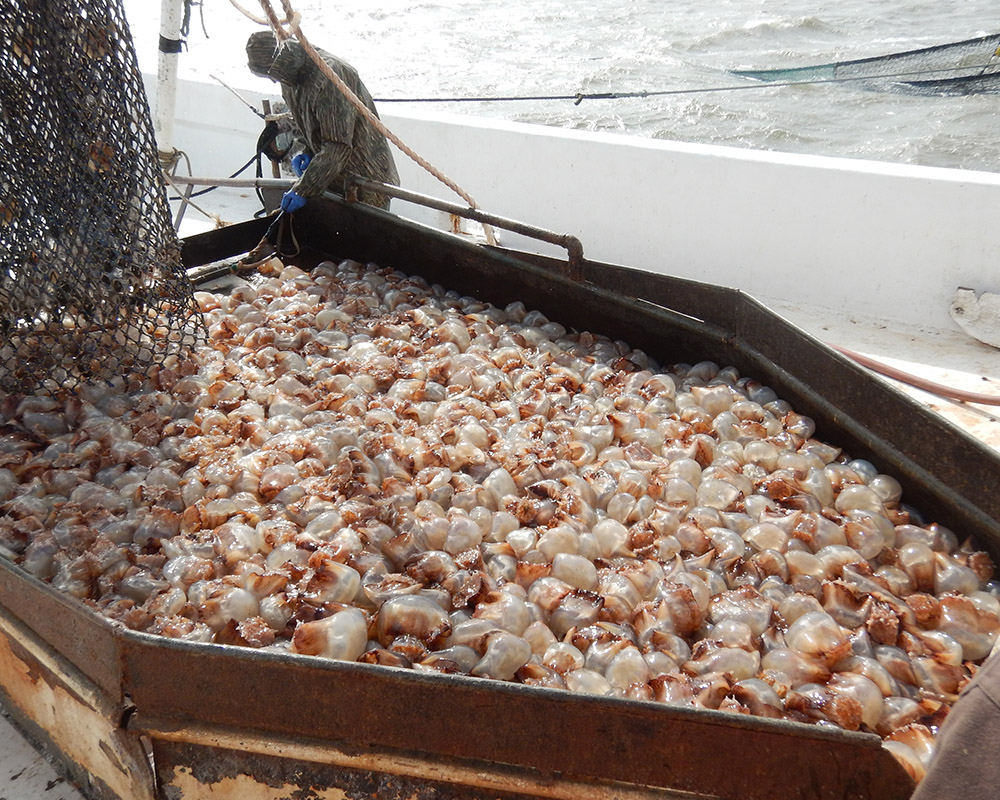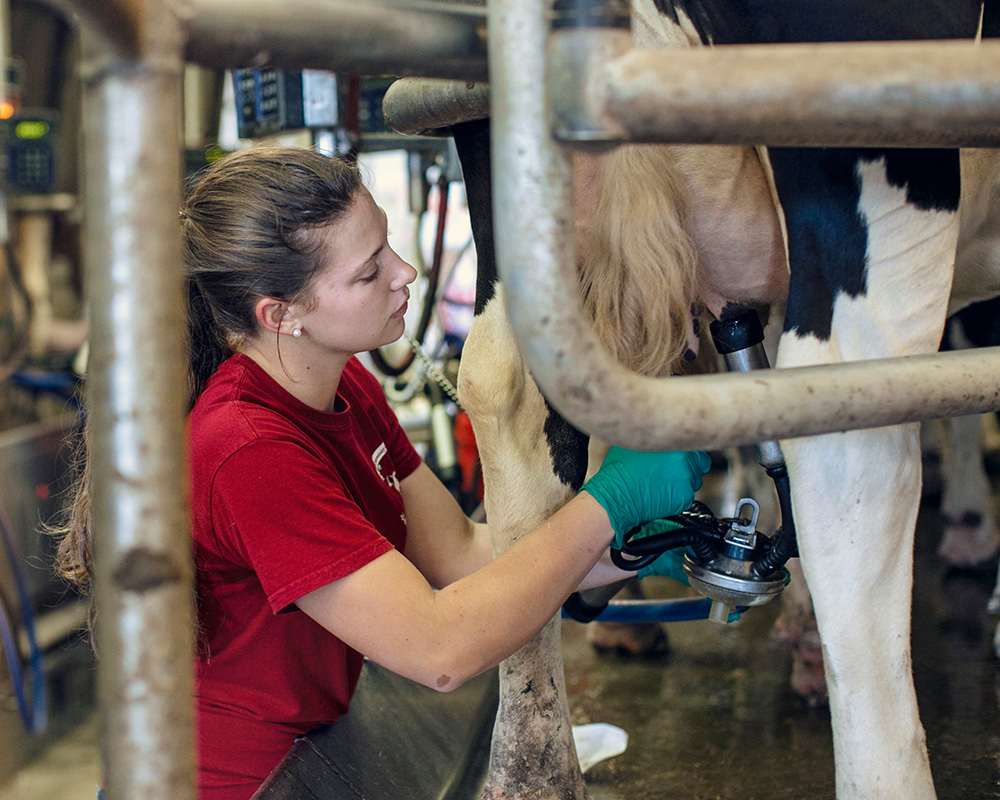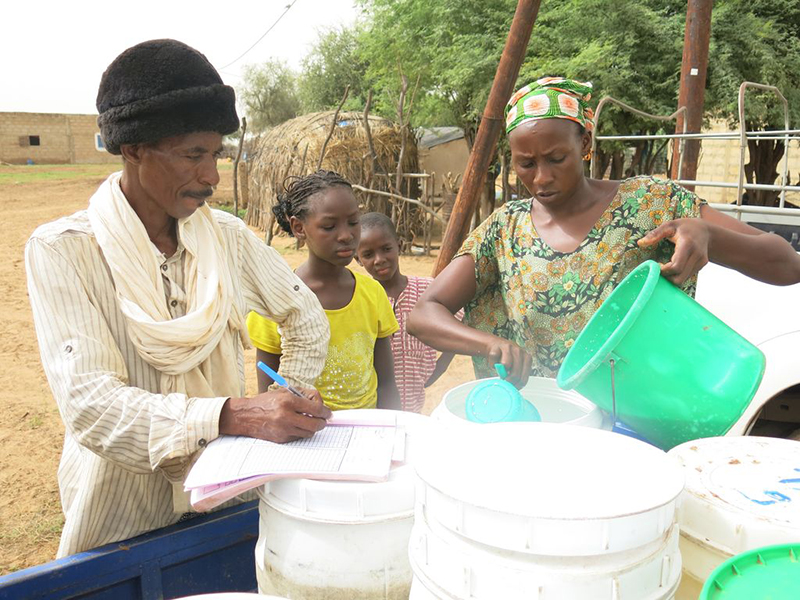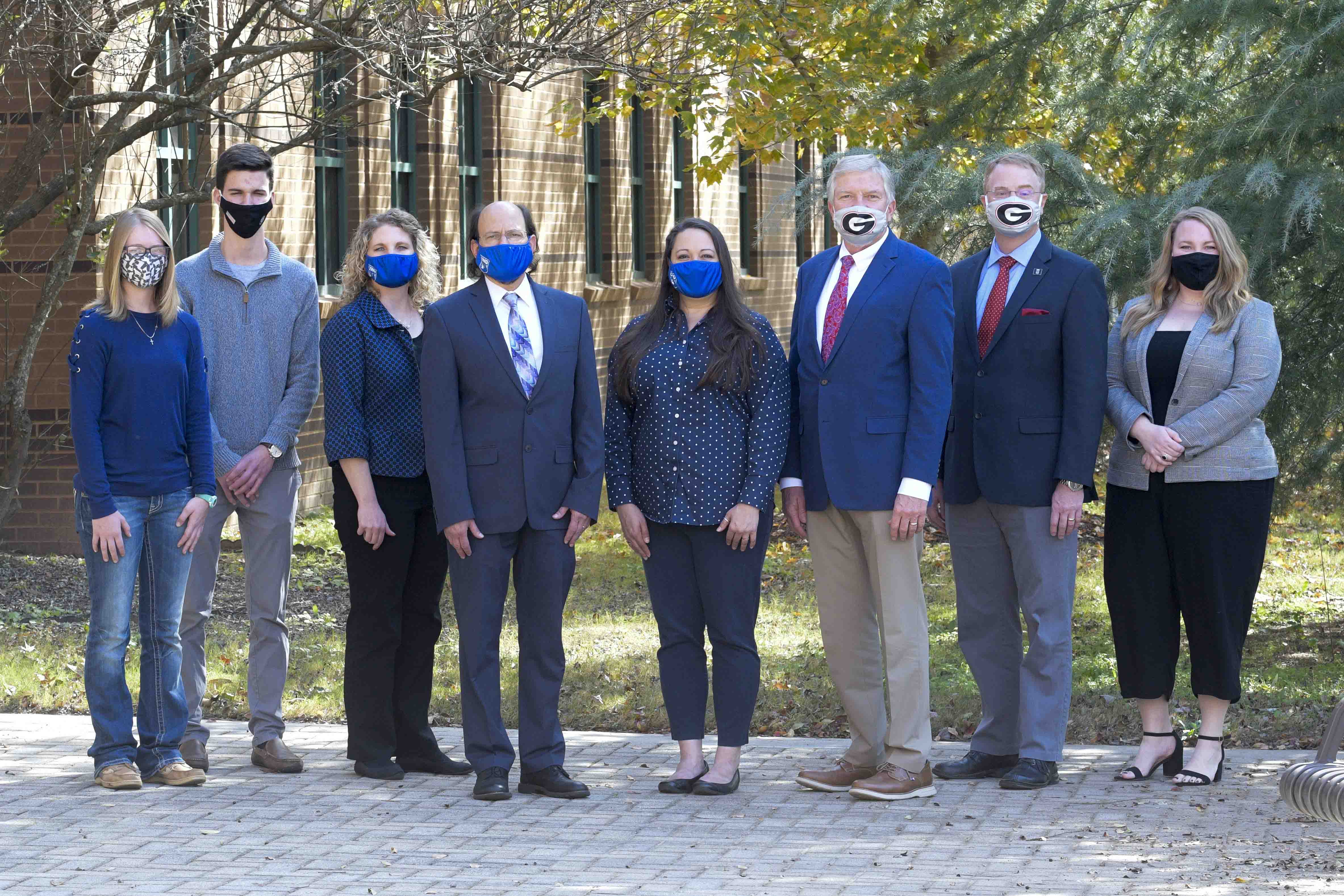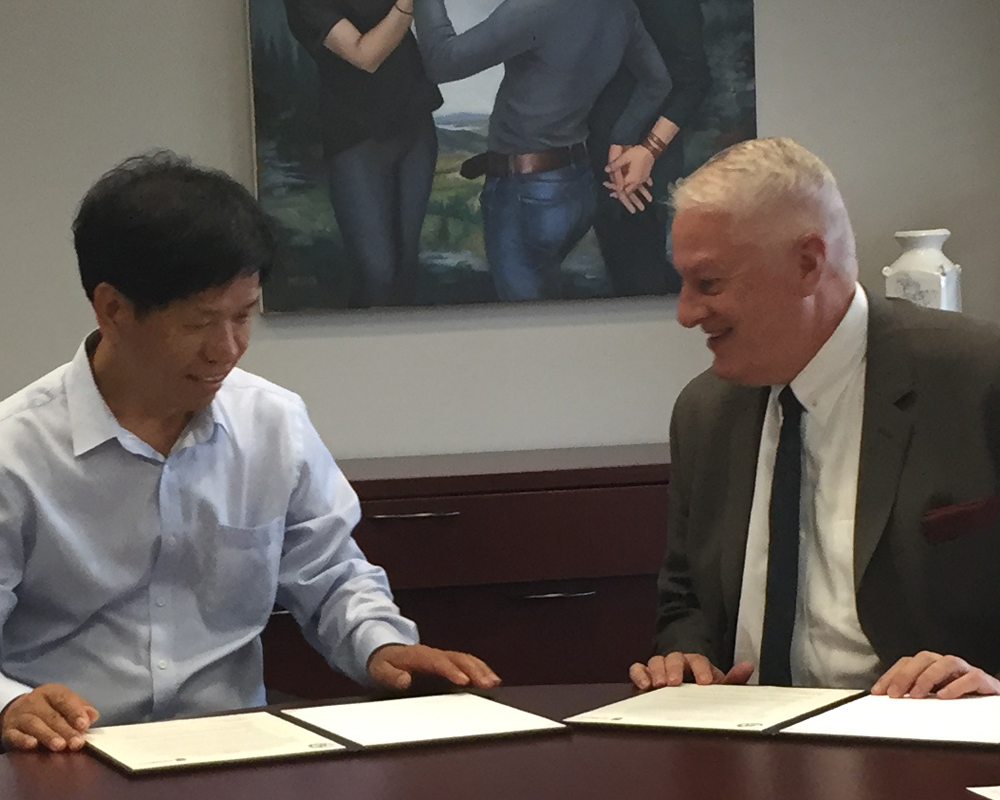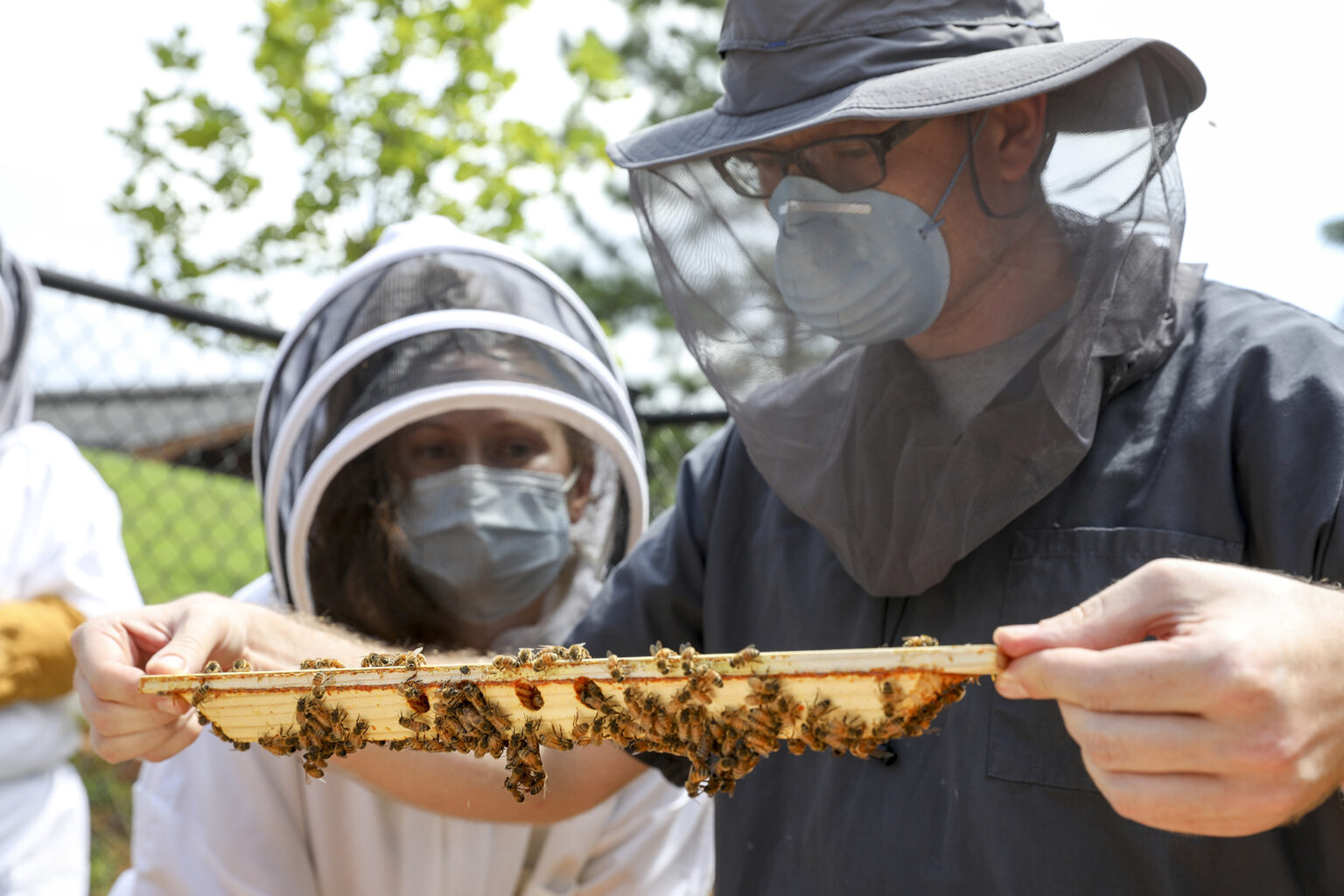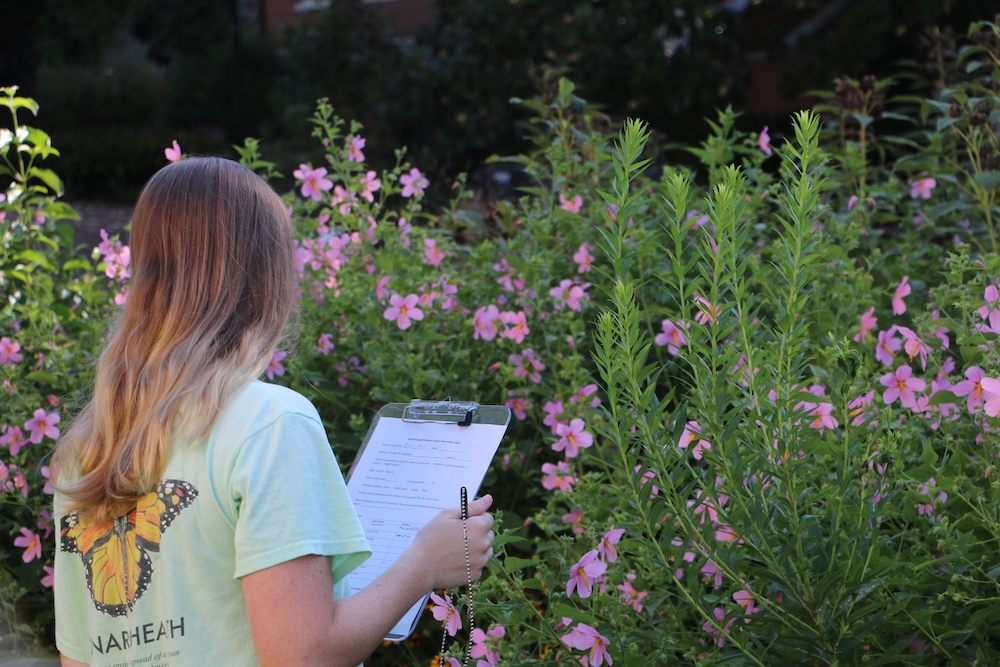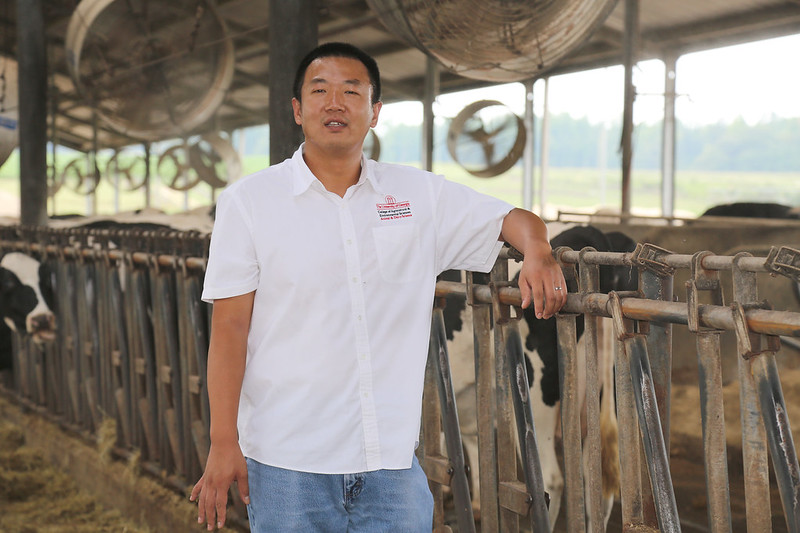 CAES News
CAES News
Dairy Research
With increasing global temperatures, dairy cattle face heat stress more frequently throughout the year than in the past. Thanks to cooling technology, dairy cattle can enjoy a better quality of life, but farmers and consumers may wonder if cattle comfort results in more milk.

